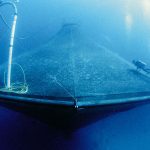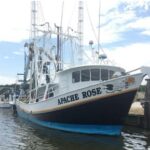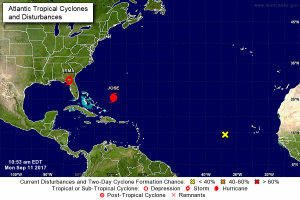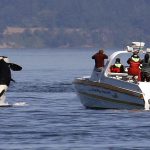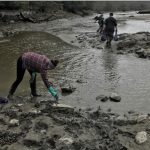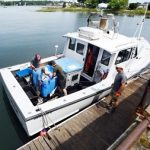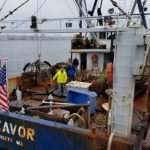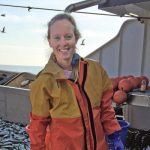Daily Archives: August 21, 2016
Nathan Cullen wants changes to the fisheries system in the North West of Canada
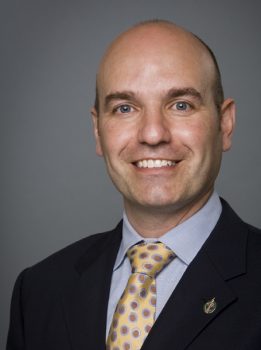 The fisheries system in the North West of Canada needs an overhaul. That was the message from the Skeena-Bulkley Valley MP, Nathan Cullen, last week when he spoke with media. An incident between a few fishermen and Department of Fisheries and Oceans (DFO) officers on Aug. 2 has increased tensions in the area, and Canfisco Oceanview plant saw an increased presence of officers. Frustration is mounting over the changing regulations and restrictive fishing methods, and allowing certain user groups to fish down the coast, a DFO spokesperson stated two weeks ago.,, His answer is to sit down with DFO and the fisheries minister and reform the fishery. Some of the changes he’d like to see already exist on the East Coast. One example he gave was the owner-operator policy in the Atlantic, where commercial fishing licences are held by an individual or the licence holders’s company. Read the story here 20:26
The fisheries system in the North West of Canada needs an overhaul. That was the message from the Skeena-Bulkley Valley MP, Nathan Cullen, last week when he spoke with media. An incident between a few fishermen and Department of Fisheries and Oceans (DFO) officers on Aug. 2 has increased tensions in the area, and Canfisco Oceanview plant saw an increased presence of officers. Frustration is mounting over the changing regulations and restrictive fishing methods, and allowing certain user groups to fish down the coast, a DFO spokesperson stated two weeks ago.,, His answer is to sit down with DFO and the fisheries minister and reform the fishery. Some of the changes he’d like to see already exist on the East Coast. One example he gave was the owner-operator policy in the Atlantic, where commercial fishing licences are held by an individual or the licence holders’s company. Read the story here 20:26
Fishermen’s Protest in Chile – Fighting against the privatization of the seas
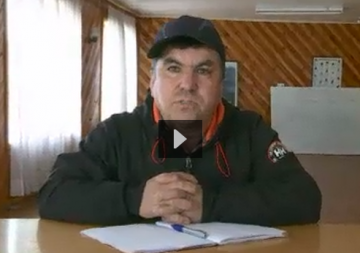 Chile’s fishermen are fighting against the privatization of the sea. Salmon farms and factory fishing are driving out ordinary fishermen. Profits from these large-scale ventures are being pocketed by a few powerful companies. They are convinced that the salmon farms are destroying the environment, killing marine mammals and wild fish, and causing uncontrolled pollution. This is an interesting video, and its well worth the twelve minute investment of your time. These fishermen have so much in common with small scale fishermen everywhere. Watch the video, Click here 18:24
Chile’s fishermen are fighting against the privatization of the sea. Salmon farms and factory fishing are driving out ordinary fishermen. Profits from these large-scale ventures are being pocketed by a few powerful companies. They are convinced that the salmon farms are destroying the environment, killing marine mammals and wild fish, and causing uncontrolled pollution. This is an interesting video, and its well worth the twelve minute investment of your time. These fishermen have so much in common with small scale fishermen everywhere. Watch the video, Click here 18:24
Alaska Pink Salmon Fishery Set To Rank as Worst in 20 Years
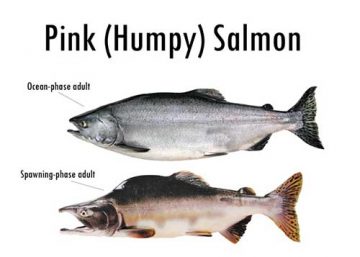 Alaska’s 2016 pink salmon fishery is set to rank as the worst in 20 years by a long shot, and the outlook is bleak for all other salmon catches except sockeyes. “Boy, sockeye is really going to have to carry the load in terms of the fishery’s value because there’s a lot of misses elsewhere,” said Andy Wink, a fisheries economist with the Juneau-based McDowell Group. The historical peaks of the various salmon runs have already passed and the pink salmon catch so far has yet to break 35 million on a forecast of 90 million. That compares to a harvest of 190 million pinks last year. Weekly tracking through August 15 shows the pace of the Chinook salmon harvest (341,000) is down 42 percent versus last year in net fisheries, cohos (under 2 million) are down 20 percent, and the chum catch (12 million) is down 25 percent. Read the article here 14:42
Alaska’s 2016 pink salmon fishery is set to rank as the worst in 20 years by a long shot, and the outlook is bleak for all other salmon catches except sockeyes. “Boy, sockeye is really going to have to carry the load in terms of the fishery’s value because there’s a lot of misses elsewhere,” said Andy Wink, a fisheries economist with the Juneau-based McDowell Group. The historical peaks of the various salmon runs have already passed and the pink salmon catch so far has yet to break 35 million on a forecast of 90 million. That compares to a harvest of 190 million pinks last year. Weekly tracking through August 15 shows the pace of the Chinook salmon harvest (341,000) is down 42 percent versus last year in net fisheries, cohos (under 2 million) are down 20 percent, and the chum catch (12 million) is down 25 percent. Read the article here 14:42
Warm water blamed for lowest sockeye salmon run on record
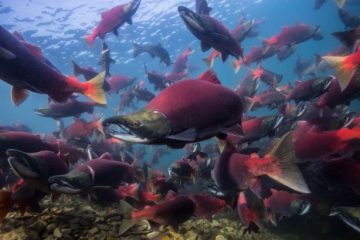 Warm summer temperatures may have Lower Mainlanders feeling good, but they are proving lethal for sockeye salmon. The Pacific Salmon Commission recently revised its already low forecast for sockeye numbers from 2.3 million to 1.1 million in the Fraser River, which would be the lowest number since records have been kept. As of August 12, the DFO has suspended all sockeye fisheries in response. John Reynolds, professor of aquatic ecology and conservation at Simon Fraser University, said three main factors are contributing to this year’s low numbers: a small parental generation; a “blob” of warm water in the Pacific Ocean; and higher-than-normal temperatures in the Fraser River. Sockeye spawn over a four-year cycle, and Reynolds said the last cycle’s already low numbers meant low numbers were a distinct possibility for this year. Read the rest here 11:39
Warm summer temperatures may have Lower Mainlanders feeling good, but they are proving lethal for sockeye salmon. The Pacific Salmon Commission recently revised its already low forecast for sockeye numbers from 2.3 million to 1.1 million in the Fraser River, which would be the lowest number since records have been kept. As of August 12, the DFO has suspended all sockeye fisheries in response. John Reynolds, professor of aquatic ecology and conservation at Simon Fraser University, said three main factors are contributing to this year’s low numbers: a small parental generation; a “blob” of warm water in the Pacific Ocean; and higher-than-normal temperatures in the Fraser River. Sockeye spawn over a four-year cycle, and Reynolds said the last cycle’s already low numbers meant low numbers were a distinct possibility for this year. Read the rest here 11:39
S.C. police body cam funds go to all — including oyster officers
 After a bystander’s video last year showed a white North Charleston police officer shooting and killing a fleeing, unarmed black man, widespread outrage spurred South Carolina lawmakers to vote in favor of police body cameras, and to come up with $5.8 million to pay for cameras and data storage. Among the top recipients of the limited cash is the state Department of Health and Environmental Control. Its $135,100 grant will outfit its 32 armed officers in the divisions of drug control, shellfish monitoring and investigating environmental crimes such as illegal dumping, said agency spokesman Robert Yanity. State Sen. Greg Hembree said he knows “it seems funny” to put cameras on the officers who oversee shellfish harvesting. Read the story here 10:39
After a bystander’s video last year showed a white North Charleston police officer shooting and killing a fleeing, unarmed black man, widespread outrage spurred South Carolina lawmakers to vote in favor of police body cameras, and to come up with $5.8 million to pay for cameras and data storage. Among the top recipients of the limited cash is the state Department of Health and Environmental Control. Its $135,100 grant will outfit its 32 armed officers in the divisions of drug control, shellfish monitoring and investigating environmental crimes such as illegal dumping, said agency spokesman Robert Yanity. State Sen. Greg Hembree said he knows “it seems funny” to put cameras on the officers who oversee shellfish harvesting. Read the story here 10:39
Texas Shrimp Association industry director steamed over Deepwater Horizon Restore Act money
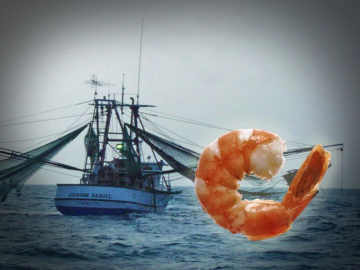 Andrea Hance isn’t happy. The executive director of the Texas Shrimp Association said that of the billions of dollars in RESTORE Act money — fines related to the Deepwater Horizon oil disaster in 2010 — that have been distributed to various groups in Gulf states, her industry received nothing for marketing and promotion, even though Texas shrimpers were significantly affected by the worst oil spill in U.S. history. It may all come down to the fact that, historically, the state’s industry has never had much of a voice, thus few people outside the industry understand it. But that doesn’t make Hance, who took the helm at TSA three years ago, feel any better about it. People assume that because the oil, which gushed from the seafloor for 87 days roughly 42 miles from the Louisiana coast, didn’t stray into Texas waters that the state’s shrimpers weren’t affected. In fact, when state and federal waters off Texas are closed to shrimping each year from mid-May to mid-July, the state’s fleet depends on the waters off Louisiana. Read the rest here 10:01
Andrea Hance isn’t happy. The executive director of the Texas Shrimp Association said that of the billions of dollars in RESTORE Act money — fines related to the Deepwater Horizon oil disaster in 2010 — that have been distributed to various groups in Gulf states, her industry received nothing for marketing and promotion, even though Texas shrimpers were significantly affected by the worst oil spill in U.S. history. It may all come down to the fact that, historically, the state’s industry has never had much of a voice, thus few people outside the industry understand it. But that doesn’t make Hance, who took the helm at TSA three years ago, feel any better about it. People assume that because the oil, which gushed from the seafloor for 87 days roughly 42 miles from the Louisiana coast, didn’t stray into Texas waters that the state’s shrimpers weren’t affected. In fact, when state and federal waters off Texas are closed to shrimping each year from mid-May to mid-July, the state’s fleet depends on the waters off Louisiana. Read the rest here 10:01
Working Waterfront: Are Morro Bay officials attempting to chip away at Measure D?
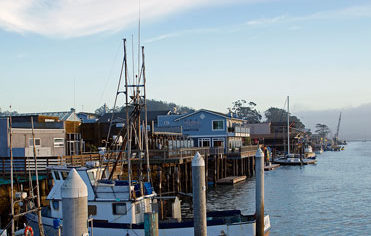 In 1981, Morro Bay fishermen Joe Giannini and Ed Ewing crafted Measure D to protect the local fishing industry. The measure sets aside the waterfront lease sites between Beach Street and Target Rock for uses “primarily for the purpose of serving or facilitating licensed commercial fishing activities or noncommercial recreational fishing activities, or is clearly incidental thereto.” Arguments in favor of the measure included: “This area is known throughout the world as the essence of Morro Bay, and its future should not be left to five council members subject to changing political pressures and self-interests. Measure D is short, direct, and easily understandable. The opponents know what it means and they fear it because it takes away their power to give financial favors to their friends.” Voters agreed and the measure passed and became part of the Morro Bay Municipal Code. It appeared that Giannini and Ewing had scored a major victory. Unfortunately, they hadn’t counted on opposition tactics that have been used repeatedly over the years. Read the story here 08:54
In 1981, Morro Bay fishermen Joe Giannini and Ed Ewing crafted Measure D to protect the local fishing industry. The measure sets aside the waterfront lease sites between Beach Street and Target Rock for uses “primarily for the purpose of serving or facilitating licensed commercial fishing activities or noncommercial recreational fishing activities, or is clearly incidental thereto.” Arguments in favor of the measure included: “This area is known throughout the world as the essence of Morro Bay, and its future should not be left to five council members subject to changing political pressures and self-interests. Measure D is short, direct, and easily understandable. The opponents know what it means and they fear it because it takes away their power to give financial favors to their friends.” Voters agreed and the measure passed and became part of the Morro Bay Municipal Code. It appeared that Giannini and Ewing had scored a major victory. Unfortunately, they hadn’t counted on opposition tactics that have been used repeatedly over the years. Read the story here 08:54


































